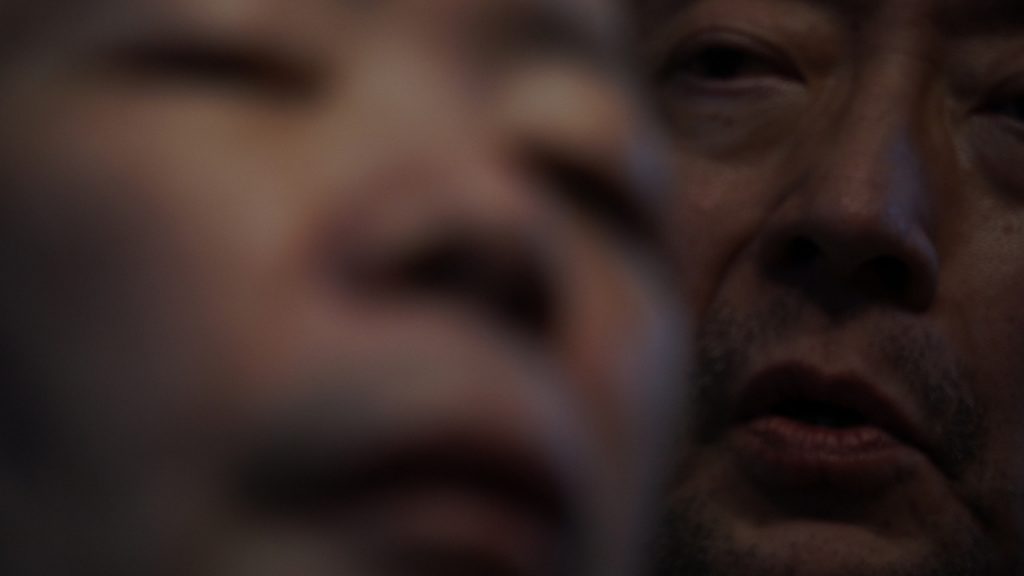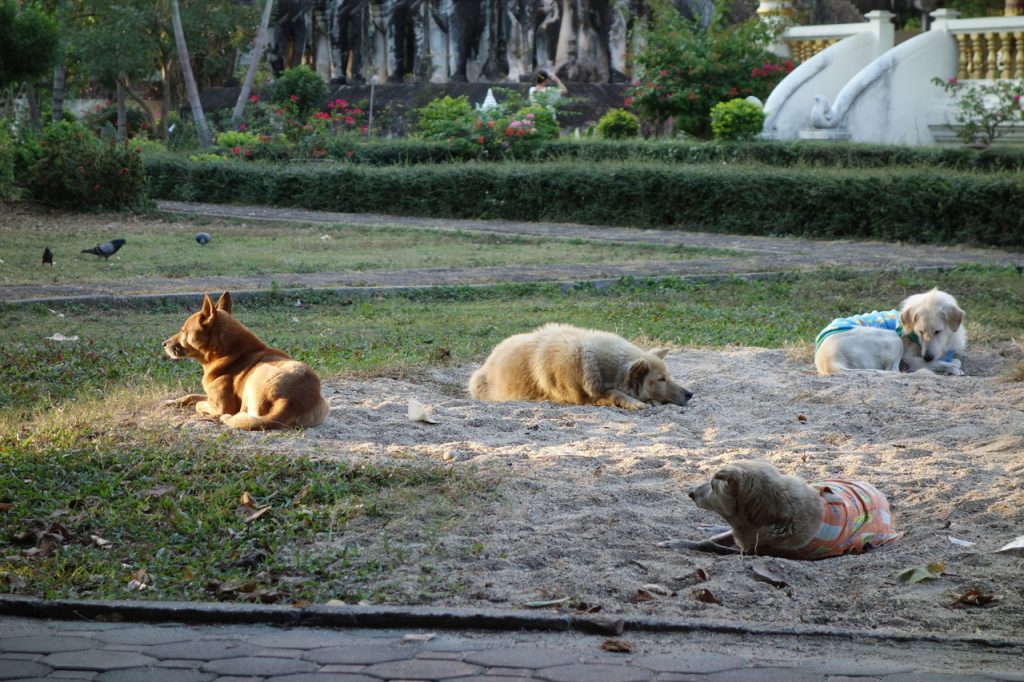Dear friends of GEGENkino, today’s already the last day of our homage to the Harvard Sensory Ethnography Lab. Big thanks to everyone that same and has been involved so far! To close our homage we have this very special feature today at Luru Kino: at 6pm you’ll get the chance to hear two sound works of Ernst Karel. Sonic cinema! (If you need some context, here’s an interesting interview with Karel at Pitchfork.)
At 8pm, we’ll have a screening of the film CANIBA by Véréna Paravel and Lucien Castaing-Taylor that has been screening at documenta 14 last year as “Commensal“ as some of you might remember. There’ll be a discussion about the filmafter the screening as it’s quite hard to chew on. Read more about it below.
| Sun 08 April 2018 Luru Kino | HOMMAGE: Sensory Ethnography Lab |
| 6 PM | Sound Works – Ernst Karel MORNING AND OTHER TIMES USA 2014, R: Ernst Karel, Audio, 30’ SWISS MOUNTAIN TRANSPORT SYSTEMS, RADIO EDIT USA 2011, R: Ernst Karel, Audio, 55’ |
| 8 PM | CANIBA (F 2017) OV w/ English subtitles D: Véréna Paravel & Lucien Castaing-Taylor 90’ |
SOUND WORKS – Ernst Karel
MORNING AND OTHER TIMES
USA 2014, R: Ernst Karel, Audio, 30’
SWISS MOUNTAIN TRANSPORT SYSTEMS, RADIO EDIT
USA 2011, R: Ernst Karel, Audio, 55’
The cinematic cosmos of SEL with its visually sensitive documentary methods, emphasizing haptics and body perception, aims at broaden-ing the possibilities of scientifi c and aesthetic approaches to cultural and ethnographic phe-nomena, enabling new perspectives on the world of objects surrounding us. Unusual ways are also taken, when these visual experiences are exclud-ed. Even on a pure auditory level, the works go other routs: In his distinct sound experiments, Ernst Karel, sound specialist of numerous SEL fi lms, explores multi-layered soundscapes. The results are socially aware and aesthetic entities, ranging from a factual fi xation of the portrayed place’s social character to an artistic composition that stands for itself in an enigmatic way. For MORNING AND OTHER TIMES, Karel col-lected tonal impressions in Chiang Mai, Thailand, over a period of several weeks. A kaleidoscope of natural and urban, animal and human sound-scapes: on the one hand we have dogs barking, roosters crowing, crickets chirruping, and snatch-es of dialogue that remain unintelligible, clatter-ing engine noise and hymn-like chanting on the other. Then, the peculiar poetry of mechanical rhythms: in SWISS MOUNTAIN TRANSPORT SYSTEM, the Swiss alpine landscape forms the background against which cableways and chair-lift rides interlock with the fl eeting environment passing by. Again, the realms of man and nature, technological reproduction and autonomous art-work are intertwined.
CANIBA
F 2017 DOK, R: Véréna Paravel & Lucien Castaing-Taylor, 90’, DCP, OmeU
CANIBA hat das GEGENkino-Team gespalten, sowohl mit der Darstellung des Inhalts als auch mit der Art der Ankündigung solch eines Inhalts – deswegen zwei sich ergänzende Texte und eine Diskussion nach dem Screening.
I
Ein Porträt der Nähe und Unnahbarkeit: Die Kamera fokussiert das Gesicht eines Mannes, tastend registriert sie jede Pore seiner verletzlich anmutenden Haut. Dann verliert sie wieder ihren Fokus, gleitet in Unschärfe ab. Der schemenhafte Hintergrund tritt nach vorn, das Gesicht hingegen zerrinnt zur unbestimmbar diffusen Masse – so wie es, wir werden es im lange währenden Interview erfahren, im Inneren dieses Menschen seine Entsprechung findet. Seine dumpfen Gedanken sind dominiert von Körperlichkeit und der Sehnsucht nach dieser. Auf eine Weise allerdings, die ihn von der Gesellschaft ausschließen muss. Issei Sagawa beging in den 1980er-Jahren in Paris einen Mord an einer Kommilitonin, die er anschließend, seinen kannibalistischen Sexualtrieb erstmals in die Tat umsetzend, in Teilen aß. Später wurde er in sein Heimatland Japan überstellt, wo seither sein Bruder mit ihm abseits der Außenwelt ein kärgliches Haus bewohnt. Jun Sagawa, bei dem ebenfalls körperliche Gewalt mit Lustgewinn einhergeht, scheint die einzige Person zu sein, die ihm zuhört und im Alltag unterstützt. Doch wechselt das Geschwisterverhältnis ständig zwischen Fürsorge und Abgestoßensein, zwischen Empathie und Nicht-Begreifen-Können. CANIBA reflektiert diese Diskrepanz: Wie kann man sich überhaupt der Psyche und ihrer Untiefen filmisch nähern?
II
In CANIBA porträtieren Véréna Paravel & Lucien Castaing-Taylor den zeitweise zur Kultfigur avancierten Mörder und Kannibalen Issei Sagawa und seinen Bruder Jun. Während sie sprechen, schleicht über weite Teile des Films die Kamera in extremen Close-Ups und mit wechselnder Schärfe die Gesichter und Körper der beiden entlang. Dabei enthält sich der Film einer moralisierenden Position und eröffnet dadurch einen schwer auszuhaltenden Raum der Ambivalenz, in dem die Brüder ihre misogynen Fantasien und (auto)aggressiven Fetische mitunter zelebrieren können. Das Regie-Duo vollzieht ein sinnlich-immersives Beschreiten der Ränder menschlicher Abgründe und keine Analyse der problematischen Verschränkung von gesellschaftlicher Faszination, Personenkult und medialer Vermarktung. Die Einflechtung von Werken der Pop- und Un-derground-Kultur – ein pornografisches Fragment mit Teilen eines Re-Enactments, ein verstörend-expliziter Comic Sagawas, der Song „La Folie“ der New-Wave-Band The Stranglers – dient hier dem Versuch einer alternativen, betont atmosphärischen Annäherung. Nach etlichen Skandalen, reißerischen Reportagen und makabren Kochshow-Auftritten rund um den „Celebrity Kannibalen“, interessiert sich CANIBA vielmehr für Formen von Begreifen und Grenzen von Bildwerdung. Ein kontroverses Stück Film, dessen Blick nicht didaktische, sondern suggestive Qualitäten hat.
As you may know, on Sunday, 6pm, at Luru Kino you’ll get the rare chance to hear some of the Ernst Karel’s sound works as part of our homage to Harvard’s Sensory Ethnography Lab; namingly:
MORNING AND OTHER TIMES
USA 2014, R: Ernst Karel, Audio, 30’
SWISS MOUNTAIN TRANSPORT SYSTEMS, RADIO EDIT
USA 2011, R: Ernst Karel, Audio, 55’
Here’s an excerpt from Aby Bliss’ review of SWISS MOUNTAIN TRANSPORT SYSTEMS for British magazine The Wire #333:
»[E]ven devoid of context, the sounds trapped on tape are curiously absorbing. They can be both soothing and suspenseful, as on ›Oberterzen-Unterterzen‹, where the low rumble of machinery and a keening wind are punctuated by periodic clankings and brief snatches of birdsong. The sense soon emerges of a landscape idealised yet only half-conquered by humans. The illusion of gliding, godlike, up a mountainside rests upon loud and often ungainly machinery, as heard on ›Stans-Kälti‹, where strains of (stereotypically) Swiss cowbells are almost drowned out by the violent exertions of the funicular train. Karel also hints at coming obsolescence: the helicopter heard on ›Simplon Pass‹ is transporting materials to a road builder, even as systems only recently documented by Karel have since been removed. Transport is less solid than its imposing infrastructure suggests.«
…and some general words on the Sensory Ethnography Lab by The Wire:
»Sensory ethnography has emerged in response to the way that anthropology has represented its human subjects in media, primarily through film. This new discipline, which has its roots in field recordings, sound art and ethnographic films, tries to develop a way of approaching anthropology’s social concerns, maintaining its methodological imperative to clearly and accurately represent its subjects, while at the same time acknowledging that the audience for such research also makes up part of the meaning that it creates. In short, sensory ethnography is an attempt to resolve the subjective, artistic approaches needed to make effective and engaging work out of empirical data, at the same time as accurately representing its observations.«








